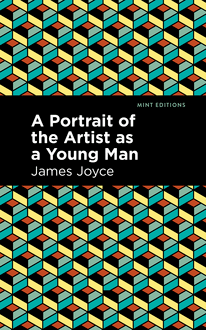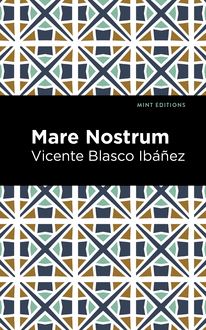-
 Univers
Univers
-
 Ebooks
Ebooks
-
 Livres audio
Livres audio
-
 Presse
Presse
-
 Podcasts
Podcasts
-
 BD
BD
-
 Documents
Documents
-
- Cours
- Révisions
- Ressources pédagogiques
- Sciences de l’éducation
- Manuels scolaires
- Langues
- Travaux de classe
- Annales de BEP
- Etudes supérieures
- Maternelle et primaire
- Fiches de lecture
- Orientation scolaire
- Méthodologie
- Corrigés de devoir
- Annales d’examens et concours
- Annales du bac
- Annales du brevet
- Rapports de stage
La lecture à portée de main
Vous pourrez modifier la taille du texte de cet ouvrage
Découvre YouScribe en t'inscrivant gratuitement
Je m'inscrisDécouvre YouScribe en t'inscrivant gratuitement
Je m'inscrisEn savoir plus
Vous pourrez modifier la taille du texte de cet ouvrage
En savoir plus

Description
Upton Sinclair’s novel, 100%: The Story of a Patriot, follows young Peter Gudge, a poor and uneducated man living in America during the first World War. After being in the wrong place at the wrong time, Peter falls victim to false allegations of domestic terrorism. As a result, Peter must abandon his old ignorance to political issues. While becoming involved in politics and the government, Peter is swept into a plot to spy on the Socialist Party, who are suspected of the domestic bombing. Though his world has been flipped upside down, Peter uses his new awareness to become a businessman. As Peter’s job exposes poor working conditions, including unsafe business practice, low wages, and unfair expectations, issues of class are apparent. While the upper class exploits the lower-class citizens, Peter’s job reveals the struggles of workers without labor laws, invoking an empathetic desire for change. Famous for politically charged novels exposing American society and the ways its institutions harmed the American people, Upton Sinclair’s 100%: The Story of a Patriot provides a compelling narrative that advocates for the working class. Through Peter, the prolific author, Upton Sinclair, exposes big business practices—demonstrating the exploitation of the poor and disadvantaged for capital gain. Sinclair lived through World War One and experienced firsthand how it affected Americans. Though fictional, 100%: The Story of a Patriot holds historical significance, as it focuses on the unique perspective of American citizens on the home front of the first World War, rather than the actual battlefield. This thrilling tale highlights the class wars in America as well as the effects the Red Scare had on American people. With a relatable protagonist and gripping prose, 100%: The Story of a Patriot depicts a journey that is very applicable to the political atmosphere of today. This edition of Upton Sinclair’s 100%: The Story of a Patriot features a stunning new cover design and is printed in a modern font to appeal to contemporary readers.
Sujets
Informations
| Publié par | Mint Editions |
| Date de parution | 07 mai 2021 |
| Nombre de lectures | 0 |
| EAN13 | 9781513274881 |
| Langue | English |
| Poids de l'ouvrage | 3 Mo |
Informations légales : prix de location à la page 0,0500€. Cette information est donnée uniquement à titre indicatif conformément à la législation en vigueur.
Extrait
100%: The Story of a Patriot
Upton Sinclair
The Story of a Patriot was first published in 1920.
This edition published by Mint Editions 2020.
ISBN 9781513269887 | E-ISBN 9781513274881
Published by Mint Editions®
minteditionbooks.com
Publishing Director: Jennifer Newens
Design & Production: Rachel Lopez Metzger
Project Manager: Micaela Clark
Typesetting: Westchester Publishing Services
C ONTENTS Section 1 Section 2 Section 3 Section 4 Section 5 Section 6 Section 7 Section 8 Section 9 Section 10 Section 11 Section 12 Section 13 Section 14 Section 15 Section 16 Section 17 Section 18 Section 19 Section 20 Section 21 Section 22 Section 23 Section 24 Section 25 Section 26 Section 27 Section 28 Section 29 Section 30 Section 31 Section 32 Section 33 Section 34 Section 35 Section 36 Section 37 Section 38 Section 39 Section 40 Section 41 Section 42 Section 43 Section 44 Section 45 Section 46 Section 47 Section 48 Section 49 Section 50 Section 51 Section 52 Section 53 Section 54 Section 55 Section 56 Section 57 Section 58 Section 59 Section 60 Section 61 Section 62 Section 63 Section 64 Section 65 Section 66 Section 67 Section 68 Section 69 Section 70 Section 71 Section 72 Section 73 Section 74 Section 75 Section 76 Section 77 Section 78 Section 79 Section 80 Section 81 Section 82 Section 83 Section 84 Section 85 Section 86 Appendix
Section 1
Now and then it occurs to one to reflect upon what slender threads of accident depend the most important circumstances of his life; to look back and shudder, realizing how close to the edge of nothingness his being has come. A young man is walking down the street, quite casually, with an empty mind and no set purpose; he comes to a crossing, and for no reason that he could tell he takes the right hand turn instead of the left; and so it happens that he encounters a blue-eyed girl, who sets his heart to beating. He meets the girl, marries her—and she became your mother. But now, suppose the young man had taken the left hand turn instead of the right, and had never met the blue-eyed girl; where would you be now, and what would have become of those qualities of mind which you consider of importance to the world, and those grave affairs of business to which your time is devoted?
Something like that it was which befell Peter Gudge; just such an accident, changing the whole current of his life, and making the series of events with which this story deals. Peter was walking down the street one afternoon, when a woman approached and held out to him a printed leaflet. “Read this, please,” she said.
And Peter, who was hungry, and at odds with the world, answered gruffly: “I got no money.” He thought it was an advertising dodger, and he said: “I can’t buy nothin’.”
“It isn’t anything for sale,” answered the woman. “It’s a message.”
“Religion?” said Peter. “I just got kicked out of a church.”
“No, not a church,” said the woman. “It’s something different; put it in your pocket.” She was an elderly woman with gray hair, and she followed along, smiling pleasantly at this frail, poor-looking stranger, but nagging at him. “Read it some time when you’ve nothing else to do.” And so Peter, just to get rid of her, took the leaflet and thrust it into his pocket, and went on, and in a minute or two had forgotten all about it.
Peter was thinking—or rather Peter’s stomach was thinking for him; for when you have had nothing to eat all day, and nothing on the day before but a cup of coffee and one sandwich, your thought-centers are transferred from the top to the middle of you. Peter was thinking that this was a hell of a life. Who could have foreseen that just because he had stolen one miserable fried doughnut, he would lose his easy job and his chance of rising in the world? Peter’s whole being was concentrated on the effort to rise in the world; to get success, which means money, which means ease and pleasure—the magic names which lure all human creatures.
But who could have foreseen that Mrs. Smithers would have kept count of those fried doughnuts every time anybody passed thru her pantry? And it was only that one ridiculous circumstance which had brought Peter to his present misery. But for that he might have had his lunch of bread and dried herring and weak tea in the home of the shoe-maker’s wife, and might have still been busy with his job of stirring up dissension in the First Apostolic Church, otherwise known as the Holy Rollers, and of getting the Rev. Gamaliel Lunk turned out, and Shoemaker Smithers established at the job of pastor, with Peter Gudge as his right hand man.
Always it had been like that, thru Peter’s twenty years of life. Time after time he would get his feeble clutch fixed upon the ladder of prosperity, and then something would happen—some wretched thing like the stealing of a fried doughnut—to pry him loose and tumble him down again into the pit of misery.
So Peter walked along, with his belt drawn tight, and his restless blue eyes wandering here and there, looking for a place to get a meal. There were jobs to be had, but they were hard jobs, and Peter wanted an easy one. There are people in this world who live by their muscles, and others who live by their wits; Peter belonged to the latter class; and had missed many a meal rather than descend in the social scale.
Peter looked into the faces of everyone he passed, searching for a possible opening. Some returned his glance, but never for more than a second, for they saw an insignificant looking man, undersized, undernourished, and with one shoulder higher than the other, a weak chin and mouth, crooked teeth, and a brown moustache too feeble to hold itself up at the corners. Peters’ straw hat had many straws missing, his second-hand brown suit was become third-hand, and his shoes were turning over at the sides. In a city where everybody was “hustling,” everybody, as they phrased it, “on the make,” why should anyone take a second glance at Peter Gudge? Why should anyone care about the restless soul hidden inside him, or dream that Peter was, in his own obscure way, a sort of genius? No one did care; no one did dream.
It was about two o’clock of an afternoon in July, and the sun beat down upon the streets of American City. There were crowds upon the streets, and Peter noticed that everywhere were flags and bunting. Once or twice he heard the strains of distant music, and wondered what was “up.” Peter had not been reading the newspapers; all his attention had been taken up by the quarrels of the Smithers faction and the Lunk faction in the First Apostolic Church, otherwise known as the Holy Rollers, and great events that had been happening in the world outside were of no concern to him. Peter knew vaguely that on the other side of the world half a dozen mighty nations were locked together in a grip of death; the whole earth was shaken with their struggles, and Peter had felt a bit of the trembling now and then. But Peter did not know that his own country had anything to do with this European quarrel, and did not know that certain great interests thruout the country had set themselves to rouse the public to action.
This movement had reached American City, and the streets had broken out in a blaze of patriotic display. In all the windows of the stores there were signs: “Wake up, America!” Across the broad Main Street there were banners: “America Prepare!” Down in the square at one end of the street a small army was gathering—old veterans of the Civil War, and middle-aged veterans of the Spanish War, and regiments of the state militia, and brigades of marines and sailors from the ships in the harbor, and members of fraternal lodges with their Lord High Chief Grand Marshals on horseback with gold sashes and waving white plumes, and all the notables of the city in carriages, and a score of bands to stir their feet and ten thousand flags waving above their heads. “Wake up America!” And here was Peter Gudge, with an empty stomach, coming suddenly upon the swarming crowds in Main Street, and having no remotest idea what it was all about.
A crowd suggested one thing to Peter. For seven years of his young life he had been assistant to Pericles Priam, and had traveled over America selling Priam’s Peerless Pain Paralyzer; they had ridden in an automobile, and wherever there was a fair or a convention or an excursion or a picnic, they were on hand, and Pericles Priam would stop at a place where the crowds were thickest, and ring a dinner bell, and deliver his super-eloquent message to humanity—the elixir of life revealed, suffering banished from the earth, and all inconveniences of this mortal state brought to an end for one dollar per bottle of fifteen per cent opium. It had been Peter’s job to handle the bottles and take in the coin; and so now, when he saw the crowd, he looked about him eagerly. Perhaps there might be here some vender of corn-plasters or ink-stain removers, or some three card monte man to whom Peter could attach himself for the price of a sandwich.
Peter wormed his way thru the crowd for two or three blocks, but saw nothing more promising than venders of American flags on little sticks, and of patriotic buttons with “Wake up America!” But then, on the other side of the street at one of the crossings Peter saw a man standing on a truck making a speech, and he dug his way thru the crowd, elbowing, sliding this way and that, begging everybody’s pardon—until at last he was out of the crowd, and standing in the open way which had been cleared for the procession, a seemingly endless road lined with solid walls of human beings, with blue-uniformed policemen holding them back. Peter started to run across—and at that same instant came the end of the world.
Section 2
One who seeks to tell a
-
 Univers
Univers
-
 Ebooks
Ebooks
-
 Livres audio
Livres audio
-
 Presse
Presse
-
 Podcasts
Podcasts
-
 BD
BD
-
 Documents
Documents
-
Jeunesse
-
Littérature
-
Ressources professionnelles
-
Santé et bien-être
-
Savoirs
-
Education
-
Loisirs et hobbies
-
Art, musique et cinéma
-
Actualité et débat de société
-
Jeunesse
-
Littérature
-
Ressources professionnelles
-
Santé et bien-être
-
Savoirs
-
Education
-
Loisirs et hobbies
-
Art, musique et cinéma
-
Actualité et débat de société
-
Actualités
-
Lifestyle
-
Presse jeunesse
-
Presse professionnelle
-
Pratique
-
Presse sportive
-
Presse internationale
-
Culture & Médias
-
Action et Aventures
-
Science-fiction et Fantasy
-
Société
-
Jeunesse
-
Littérature
-
Ressources professionnelles
-
Santé et bien-être
-
Savoirs
-
Education
-
Loisirs et hobbies
-
Art, musique et cinéma
-
Actualité et débat de société
- Cours
- Révisions
- Ressources pédagogiques
- Sciences de l’éducation
- Manuels scolaires
- Langues
- Travaux de classe
- Annales de BEP
- Etudes supérieures
- Maternelle et primaire
- Fiches de lecture
- Orientation scolaire
- Méthodologie
- Corrigés de devoir
- Annales d’examens et concours
- Annales du bac
- Annales du brevet
- Rapports de stage



















